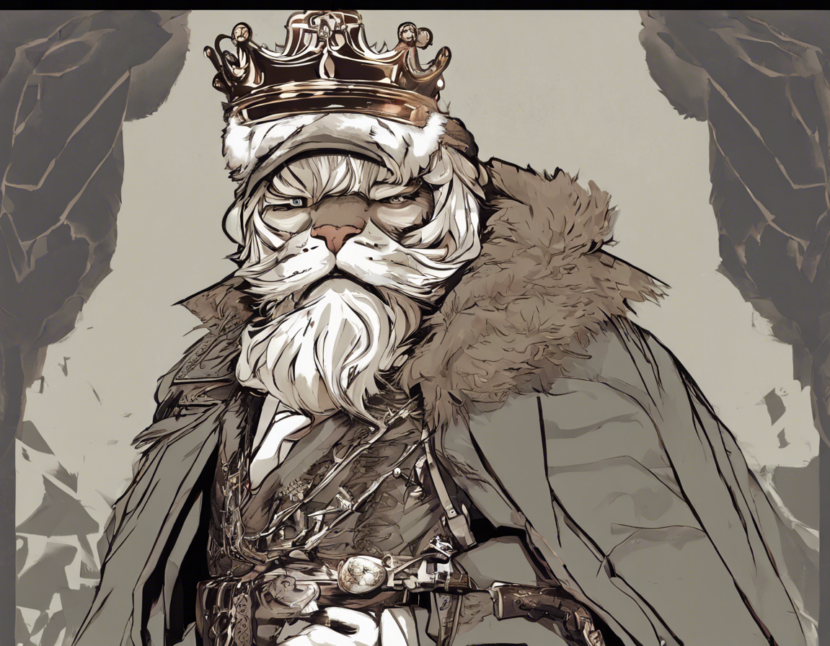Introduction
King of Prussia is a prominent title that has been held by various monarchs throughout history. The name itself conjures images of grandeur, power, and authority. It harkens back to a time when kings were revered and ruled over vast empires. But what does it truly mean to be the King of Prussia? In this article, we will delve into the history of the Kingdom of Prussia, the significance of the title, and the rulers who have held this prestigious position.
The Rise of Prussia
Prussia was a historical state in Northern Europe that emerged as a powerful kingdom in the 18th century. It originated from the Duchy of Prussia, a fiefdom of the Teutonic Knights, and gradually expanded through conquest and diplomacy. Under the leadership of skilled rulers such as Frederick William I and Frederick the Great, Prussia became known for its disciplined military, efficient bureaucracy, and strong central government.
The Kingdom of Prussia
In 1701, Frederick I of Prussia took the title of King in Prussia. This marked the beginning of the Kingdom of Prussia, which would eventually grow to become the dominant state in the German Empire. The kingdom encompassed territories in present-day Germany, Poland, Russia, and Lithuania, making it one of the most powerful and influential states in Europe.
Key Rulers of Prussia
- Frederick William I: Known as the Soldier King, he transformed Prussia into a military powerhouse.
- Frederick II (Frederick the Great): A brilliant military strategist and reformer who expanded Prussia’s territories and implemented modernizing reforms.
- Wilhelm I: The first German Emperor and King of Prussia, who played a key role in the unification of Germany.
- Wilhelm II: The last German Emperor and King of Prussia, whose reign saw the outbreak of World War I and the eventual downfall of the German monarchy.
Legacy of the King of Prussia
The title of King of Prussia carries with it a legacy of power, ambition, and influence. The rulers of Prussia shaped not only the history of their own kingdom but also the destiny of Europe. Their military prowess, administrative skills, and cultural achievements left an indelible mark on the continent.
Frequently Asked Questions (FAQs)
1. What was the significance of the Kingdom of Prussia in European history?
The Kingdom of Prussia played a crucial role in shaping the geopolitical landscape of Europe. It was a formidable military power and a key player in the unification of Germany.
2. How did Prussia differ from other European monarchies of its time?
Prussia stood out for its efficient bureaucracy, disciplined military, and emphasis on meritocracy. Its rulers focused on modernizing reforms and expanding the kingdom’s influence.
3. Who was Frederick the Great, and what were his contributions to Prussia?
Frederick II, also known as Frederick the Great, was a renowned military strategist and reformer. He expanded Prussia’s territories, implemented legal and administrative reforms, and promoted the arts and culture.
4. What led to the eventual downfall of the Kingdom of Prussia?
The Kingdom of Prussia faced challenges such as internal unrest, external pressures, and the rise of competing powers in Europe. The defeat in World War I and the abolition of the monarchy marked the end of Prussia as a kingdom.
5. How is the legacy of the King of Prussia remembered today?
The legacy of the King of Prussia lives on in historical landmarks, cultural institutions, and the memory of a once-great kingdom. Prussia’s influence can still be seen in modern Germany and Europe.
Conclusion
The title of King of Prussia evokes a sense of majesty and authority that is steeped in history. From the rise of Prussia as a regional power to its eventual transformation into the Kingdom of Prussia, the rulers who held this title left a lasting legacy that continues to resonate today. The Kingdom of Prussia may no longer exist in its original form, but its impact on European history and culture endures. As we reflect on the triumphs and tribulations of the King of Prussia, we gain a deeper appreciation for the complexities of power, leadership, and legacy in the annals of history.



